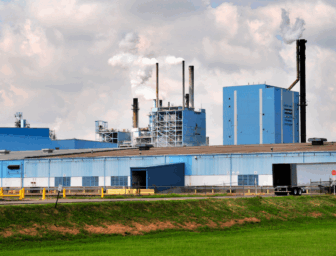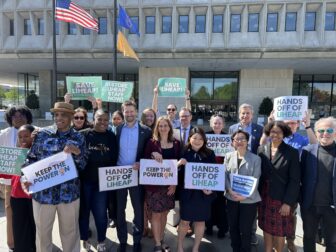A coalition of environmental groups today challenged Governor Kaine
Kaine Prioritizes Coal and Nuclear Power Over Clean Energy
Groups praise Governor’s initiative, but challenge lack of concrete steps and viable action plan
SEPTEMBER 18, 2007—A coalition of environmental groups today challenged Governor Kaine’s energy plan for failing to propose concrete actions to reduce global warming and shift Virginia towards clean sources of energy. The majority of the proposal perpetuates reliance on outdated dirty technologies, including coal and nuclear energy.
“Creating a reduction plan is a step in the right direction, said Joshua Tulkin, Deputy Director of the Chesapeake Climate Action Network, one of the groups leading the rejection of Gov. Kaine’s energy plan. “But the Governor fails to recommend the proper steps to get there. There are no recommendations to curtail plans to build new coal-fired power plants, and the plan even encourages expansion of coal-development and petroleum production.”
Virginia, with over 3,000 miles of tidal shoreline, is highly susceptible to two results of global warming: sea level rise and increased storm surges from more intense storms. It is home to the world’s largest naval station, in Norfolk. Virginia Beach, a world-renowned tourist destination, is responsible for 11,400 jobs and $895 million in revenue and Virginia has a commercial fishing industry that landed 35,443 tons of finfish and shellfish in 2005, with a total value of $130 million.
Yet, despite the state’s vulnerability to global warming, Governor Kaine’s energy plan fails to prioritize clean energy over expanding coal power. The plan accepts without question that “Virginia’s electricity usage will continue to climb …” To meet this demand, the plan presumes the need for expansion of clean coal, nuclear, municipal solid waste, off-shore petroleum, and other dirty technologies.
“Nuclear power does not make economic sense,” commented Yochi Zakai of Co-op America. “Nuclear reactors built in recent history have faced huge cost overruns and no new nuclear plants will be financed without federal loan guarantees. Virginians will be exposed to the highest level of toxic risk while paying for this expensive power. The cheapest, cleanest option for Virginia is to invest in energy efficiency and renewable power.”
“The Governor’s plan only pays lip-service to energy efficiency and greenhouse gas emission targets,” says Anthony Noerpel, director of Loudoun County Committee for a Sustainable Society. “If Gov. Kaine is serious about global warming, he needs to prioritize clean renewable energy before building any new coal-fired power plants.
To cut down on Virginia’s global warming pollution, environmental groups are calling for an analysis of pollution in Virginia by source, which would enable the state to effectively target the biggest carbon dioxide emitters.
The groups are also calling for a mandatory renewable energy standard, a policy that requires electricity providers to obtain a minimum percentage of their power from renewable energy resources by a certain date. Renewable energy standards (RES) have been adopted by 24 states plus the District of Columbia and the U.S. Senate approved the measure over the summer.
Finally the coalition is calling on Virginia to adopt California’s clean car standards, which would decrease polluting tailpipe emissions coming for all cars purchased in Virginia, and has been adopted by 12 other states, including Maryland.
“If we are serious about confronting the growing crisis of global warming, Virginia must prioritize efficiency, conservation and clean energy over any new expansion of conventional technology,” concluded Paul Burman of CCAN. “Without a renewable energy standard, a commitment to cleaner cars, and a sophisticated analysis of pollution in Virginia by source, the energy plan is irreparably flawed.”
###
The Chesapeake Climate Action Network (CCAN) is the first grassroots, nonprofit organization dedicated exclusively to fighting global warming in Maryland, Virginia, and Washington, D.C. Our mission is to educate and mobilize citizens of this region in a way that fosters a rapid societal switch to clean energy and energy-efficient products, thus joining similar efforts worldwide to slow and perhaps halt the dangerous trend of global warming.
Co-op America is a non-profit membership organization founded in 1982 with the mission to harness economic power—the strength of consumers, investors, businesses, and the marketplace—and to create a socially just and environmentally sustainable society.
Loudoun County Committee for a Sustainable Society promotes the development of a local community economy based on environmental stewardship and the sustainable use of resources.




